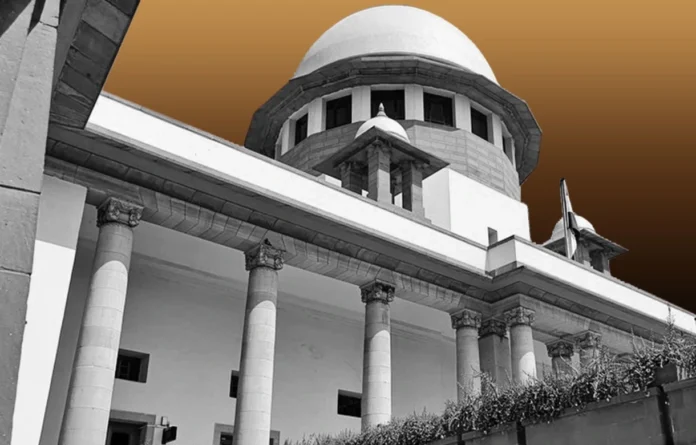The Supreme Court of India has firmly rejected a plea seeking exemption from the personal appearance of Chief Secretaries of States and Union Territories in the matter concerning the alarming rise in stray dog attacks and the implementation of the Animal Birth Control (ABC) Rules.
A bench comprising Justice Vikram Nath and Justice Sandeep Mehta made it clear that these top officials must appear in person before the Court, stressing that mere virtual participation would not be acceptable.
The case stems from growing public concern over frequent dog bite incidents across the country and the alleged failure of state authorities to effectively manage the stray dog population. Despite multiple directions from the Supreme Court over the years, many state governments have reportedly not taken adequate steps to enforce the ABC Rules or to control the situation in compliance with the Court’s orders.
During the hearing, the Solicitor General informed the bench that affidavits had been filed on behalf of several States and Union Territories detailing the measures undertaken to tackle the stray dog issue. However, the Court noted that as of the last hearing, only three States had submitted their affidavits, leaving the majority in default. The bench expressed clear dissatisfaction with this response, remarking that the matter had dragged on for far too long and that the authorities had failed to treat it with the seriousness it deserved.
The judges emphasised that the personal appearance of the Chief Secretaries was necessary to ensure accountability at the highest administrative level. The Court observed that orders issued in previous hearings had been ignored or only partially implemented. It reiterated that the purpose of summoning senior officials was not punitive but to ensure that meaningful and coordinated action was taken to curb the stray dog menace in accordance with the ABC Rules. The bench further stated that failure to comply with these directions would invite strict consequences and possible coercive measures against the defaulting States and their officers.
The Court also noted that the issue of stray dogs has become a significant public safety concern, with increasing reports of dog bite cases and attacks on children and the elderly. It observed that the States have had ample time and resources to devise and implement sterilisation, vaccination, and shelter management programs but have failed to deliver tangible results. The bench highlighted that the ABC Rules provide a clear legal framework for humane control of the stray dog population through sterilisation and vaccination, and it was the duty of every State and local body to ensure compliance in both spirit and practice.
Earlier, the Supreme Court had issued notices to all States and Union Territories, except West Bengal and Telangana, directing their Chief Secretaries to appear personally to explain why the Court’s earlier orders had not been implemented. The Court made it clear that accountability for the continued non-compliance rests squarely with the top administrative officers of the States.
By dismissing the plea for exemption from personal appearance, the Supreme Court has sent a strong signal that it intends to monitor the matter closely and ensure effective on-ground implementation of its directions. The ruling reinforces the Court’s commitment to addressing the stray dog issue through direct administrative responsibility, making it clear that further delays or non-compliance will not be tolerated.
The matter has now been posted for further hearing, with the Court directing all concerned officials to remain present as ordered. The decision marks another instance of the Supreme Court asserting its supervisory authority to ensure that long-standing social and administrative issues such as public safety, animal welfare, and municipal accountability receive the attention they deserve.


